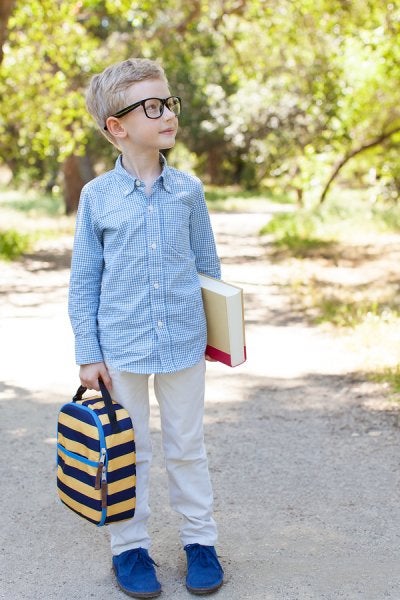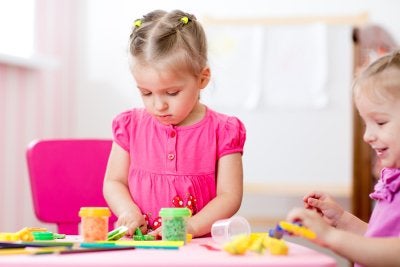-
Helpful Homework Habits
Homework is an important task in every child’s early education. It helps them retain the concepts they have learned, and it enforces accountability outside of school. There are many ways to create helpful homework habits after children leave school. Enrolling them in afterschool programs in Pembroke Pines encourages homework help, and creating the right environment at home will reinforce the importance of homework. Here are a few habits that will help children with their homework:
- Keep a routine time and place that children can do their homework. If they participate in an afterschool program, then they may finish their homework before coming home. If they do not, then set aside a quiet place that children can work.
- Observe the different ways that children respond to homework and adjust accordingly. If a child becomes easily distracted, then work together to eliminate and overcome the distractions.
- Always maintain contact with the teachers. Early education teachers and parents can communicate to understand how children respond at home versus at school. This communication can help prevent future problems with understanding concepts or behavioral issues.

-
How Can I Get My First-Grader to Eat Vegetables?
If you have been struggling with your Pembroke Pines first-grader’s eating habits, then it is time to learn new tactics. You can help your child eat more vegetables by packing snacks to take to his first-grade class and masking vegetables with other foods. Let’s take a closer look at some easy ways to get your first-grader to eat vegetables.

Encourage the “One Bite” Rule
The “one bite” rule is a simple way to encourage your child to try new foods. He must take one bite of the vegetable he does not like before he can say no to eating it. This rule can prevent your child from vetoing new foods based on their look or smell before ever tasting them.
Make Vegetables into Snacks
If your child is hungry throughout the day, then that is the perfect time to encourage him to eat healthy vegetable snacks. Do not stock your refrigerator or pantry with chips, sweets, or over-processed foods. Instead, pack small, sealable cups with a variety of vegetables and salad dressing, hummus, or peanut butter that your child can grab whenever he wants. He can also bring these snacks to his first-grade class for lunches and snack time.
Mask Vegetables in Other Foods
You may help your child to get his daily allowance of vegetables by disguising them in other foods. You can cut vegetables into small pieces that will blend in with other foods. You can also puree many vegetables, such as spinach or sweet potatoes, and add them to sweets like brownies and cookies. Your child may also respond to eating his vegetables by dipping them into dressings or cheese.
Cook Meals with Your Child
It is important to include your first-grader in your cooking habits, because he can learn how to measure for his first-grade math skills. However, cooking with your child will also help him to eat his vegetables. If he has taken part in making the meal, then he is likelier to want to eat what he made.
-
Try These Sensory Activities at Home
Sensory activities are important to help your children explore their curiosity, learn more about their world, and develop critical thinking skills. Many of the activities found in the attached video can be done at home, in an afterschool program, or early childhood learning center near Pembroke Pines . Here is a better look at some fun and creative sensory activities to do with your children:
- Gather small toys that your preschool age child will love. Freeze the toys, in layers, and give your child some tools to break through the ice. This is a fun experience that can teach your child patience.
- Cook up pastas and have your children add food coloring. This creative exercise will teach them how to mix colors to make new colors.
- Place ivory hand soap into the microwave, and it will come out in interesting shapes that your children can touch and add coloring to.
-
Tips for Kindergarten Parents
Even if your child has attended structured early childhood education programs, the kindergarten year is an exciting milestone, as it’s considered the first year of formal schooling. Your child’s education in Pembroke Pines encompasses important academic skills like math and literacy, but it also involves personal growth and socio-emotional development. Encourage your child to reach for the stars, but have reasonable expectations and give your son or daughter the freedom to simply enjoy childhood.

Nurture your child’s independence.
When your son or daughter reaches kindergarten age, he or she will start displaying greater independence. Encourage this by teaching important self-care skills. Teach your child how to button up clothes, tie shoes, and wash hands. Position the milk jug and snacks on a lower shelf in the fridge, and let your child serve him-or herself. Spills are to be expected, as your child is still learning self-care skills.
Read every day.
Reading with your child every day is one of the most impactful ways to support your child’s education. It lets your son or daughter naturally absorb the rhythm and structure of sentences, and simply get absorbed in the magical world of stories. Reading with your child nurtures the close bond you share with him or her. It sparks your child’s imagination and entices his or her curiosity.
Create a musical home.
Every child has artistic tendencies, and nurturing them supports your child’s self-esteem and sense of wonder. Music also encourages a strong vocabulary, better memory, and dynamic social skills. Sing with your child in the car, or start a band in the kitchen by tapping on overturned pots and drinking glasses. Talent is not important, but enthusiasm is.
Talk often.
When your child was an infant, you probably learned that talking to him or her frequently supported healthy development. During the kindergarten age, this fact still holds true. Encourage your child’s oral language skills by actively listening to him or her, asking open-ended questions, and letting your child know that what he or she says is important to you.
-
Answering Common Questions About Pre-Kindergarten Programs
Pre-kindergarten programs are offered to children in the year before they enter kindergarten. Children will be around four years old, which is when they are beginning to develop a better understanding of the world around them. Pre-kindergarten programs in Pembroke Pines can foster their understanding and provide the necessary academic and social education to help children succeed. Let’s take a look at the answers to some common questions about pre-kindergarten programs.

Do they provide academic value?
Pre-kindergarten programs are meant as a stepping stone into kindergarten education. These programs help children develop the much-needed foundations of kindergarten math and reading skills. Children in pre-kindergarten programs will have the opportunity to learn pre-math and pre-reading skills that will also encourage them to take an active role in the world around them.
Do they provide active play?
Active play is essential for growing children, because it encourages the development of gross and fine motor skills. Gross motor skills include larger movement skills, such as throwing a ball or performing somersaults. Fine motor skills include smaller movements needed for future schooling, such as holding a pencil, cutting with scissors, and copying basic shapes. Pre-kindergarten programs will feature a lot of active play to encourage these skills.
Do they provide social interaction?
Pre-kindergarten is a great place for children to develop and continue developing their social skills. Pre-kindergarten programs provide many opportunities to learn teamwork, communication, and social expression. This is a critical time in children’s social development, because it’s when children begin to cement their understanding of right and wrong and how to respond to other kids and adults.
Are they required education?
Pre-kindergarten programs are typically voluntary, and they may be classified as voluntary pre-kindergarten, or VPK. Though voluntary, VPK is an important program for children entering kindergarten. New education standards have made kindergarten curriculum more intense, and children must be fully prepared before entering their kindergarten class. Pre-kindergarten programs offer children the academic education, social interaction, and the foundational skills they will need to succeed in kindergarten and beyond.
-
The Importance of Communication-Rich Environments
Are you searching for the right preschool in Pembroke Pines and wondering what to look for in a quality program? If so, then you could benefit from learning about the importance of communication-rich environments for child development.
Providing children with a variety of experiences can be critical for the growth of their language and communication skills. For this reason, you should look for a preschool program that will help promote your child’s development by providing him with an environment that is language and communication-rich.
Your child’s preschool program should offer multiple language models over the course of the day, use developmentally appropriate language, model appropriate forms of grammar, and include daily drawing and writing activities. Additionally, your child’s preschool instructor should respond to every communication attempt made by children in the classroom, encourage families to visit the classroom, frequently read to the children, and respond to children based on their focus and intent. Selecting a program with these qualities can help promote the development of your preschooler.

-
How Your Preschooler Benefits from Nap Time
How much sleep a child needs and how it’s divided between daytime naps and rest at night depends on the child’s developmental stage. If your kid is of preschool age, then you may realize that this is an important time for child development. Growing properly requires plenty of sleep, making nap time an important part of her schedule whether your child is at preschool or at home. To learn about the benefits of nap time for children and why it’s so critical in a preschool setting, take a look at this infographic from Tanglewood Academy in Pembroke Pines . Please feel free to share this information with your friends and fellow parents.

-
Easy Tips for Improving Attention Spans in Pre-K Students
Attention is a challenging issue for parents and teachers of pre-K students alike. In the pre-K classroom, working on attention spans is part of the learning process, as students become more adept at learning the differences between work time and playtime. Attention span issues can be even more challenging today, when young children are accustomed to entertainment with digital devices and constant distractions. Although the ability to be attentive naturally increases with age, there are things you can do to help your student in pre-K in Pembroke Pines . Try these tips to boost the attention span of your pre-K student.

Reduce Distractions
Nearly anything can be a distraction when a young student is tackling a task he or she may not really want to do. Before your child has to concentrate on something, make sure he or she is well rested, not hungry or thirsty, and has used the bathroom. Don’t have the TV or music on, and keep digital devices tucked away. Give your child space and time to concentrate on one thing, and he or she will become more adept at tuning his or her attention to the right things.
Get Ready for the Day
If your child’s attention problems occur most often in the pre-K classroom, make sure he or she is ready for the day when you arrive at school. Avoid showing DVDs in the car, and eat breakfast at home when possible, instead of on the go. Put shoes on at home, rather than in the car. The ride to school should be a calm time when you can help your child focus on getting ready for school. Watching a DVD while frantically eating breakfast and rushing to finish getting dressed in the car will result in your child arriving at school feeling anxious and exasperated instead of ready to sit down in the classroom.
Have Realistic Expectations
As a general rule of thumb, the number of minutes your child should be able to pay attention is his or her age in years multiplied by two to five . Anything outside of that is unrealistic. Try breaking tasks up into timed chunks that fit into these windows so your child doesn’t become frustrated, which negatively impacts attention spans.
-
Try This Nature Craft with Your Young Learner
Arts activities are a terrific way to help preschool-age kids work on fine motor skills. In this video, you’ll learn an activity that is great for early childhood development and can be done at home with your preschool-age child in Pembroke Pines.
In this video, you’ll learn how to make a cactus plant using painted rocks. Encourage your child to find rocks of different sizes and then paint them to look like cacti. Like many great preschool activities, this project enhances fine motor skills by having your child work with small instruments, like paintbrushes. It also lets him or her work with colors, sizes, and shapes. In the end, your preschooler will have a project to display in his or her room and will have practiced several important skills.
-
Does Your Child Get Too Much Screen Time?
One issue that today’s parents have to face much more than in the past is the question of screen time. Experts believe that spending too much time in front of a screen can damage early childhood development and make learning more difficult. Here is what you need to know about screen time and your child’s education and how limiting screen time can protect your child’s development in Pembroke Pines.

Defining Screen Time
In a world where we are constantly surrounded by digital technology, defining “screen time” is more difficult than ever. Furthermore, children are often expected to use computers in school and for homework. The experts of the American Academy of Pediatrics defines screen time as time spent using a digital device for entertainment purposes, so using a computer or other device for an academic exercise doesn’t count. However, it is more important to be in tune to how your child responds to being in front of a screen than to rate what activities count as entertainment and which do not.
Age-Related Recommendations
The American Academy of Pediatrics says that children should not have any screen time between birth and 18 months, as it can cause overstimulation, distress, and a disconnect between children and parents. Children aged two to five can have one hour of screen time per day. For children and teens six and older, screen time should be determined by parents based on the child’s overall behavior and the amount of time he or she has left in the day after all other needs and responsibilities are met.
Choosing the Right Screen Time
Some screen time can actually aid in child development. For instance, interactive tools such as Skype can be helpful for young children as they help them practice language and other skills. In other cases, apps can help children practice numbers, shapes, sounds, and letters. For healthy child development, limit the amount of screen time that is spent passively watching a show or movie—and that includes commercials that can over-stimulate a young child.
RECENT POSTS
categories
- Uncategorized
- Early Learning Center
- Pre-K
- Children
- Child Care Center
- Preschooler
- Preschool Blog Category | Tanglewood Academy
- Preschool Lunch
- Tanglewood Academy
- After-School Program
- Toddler School
- Early Childhood Education
- preschool activities
- pre-kindergarten
- childhood education
- pre-kindergarten programs
- Children’s education
- enrichment opportunities
- Kindergarten
- Nurturing Education Environment
- Toddler Care
- Child Separation Anxiety
- Toddlers
- Summer camp
- summer activities
- VPK
- Voluntary Pre-K
- Outdoor Activities
- Smart Strategies
- Tie Shoes
- Snacks
- Physical Activities
- Education
- Enrichment Activities for Kids
- Early Education Activities
- Preschool Curriculum
- Classroom Learning
- APPLE accreditation
- Language Comprehension
